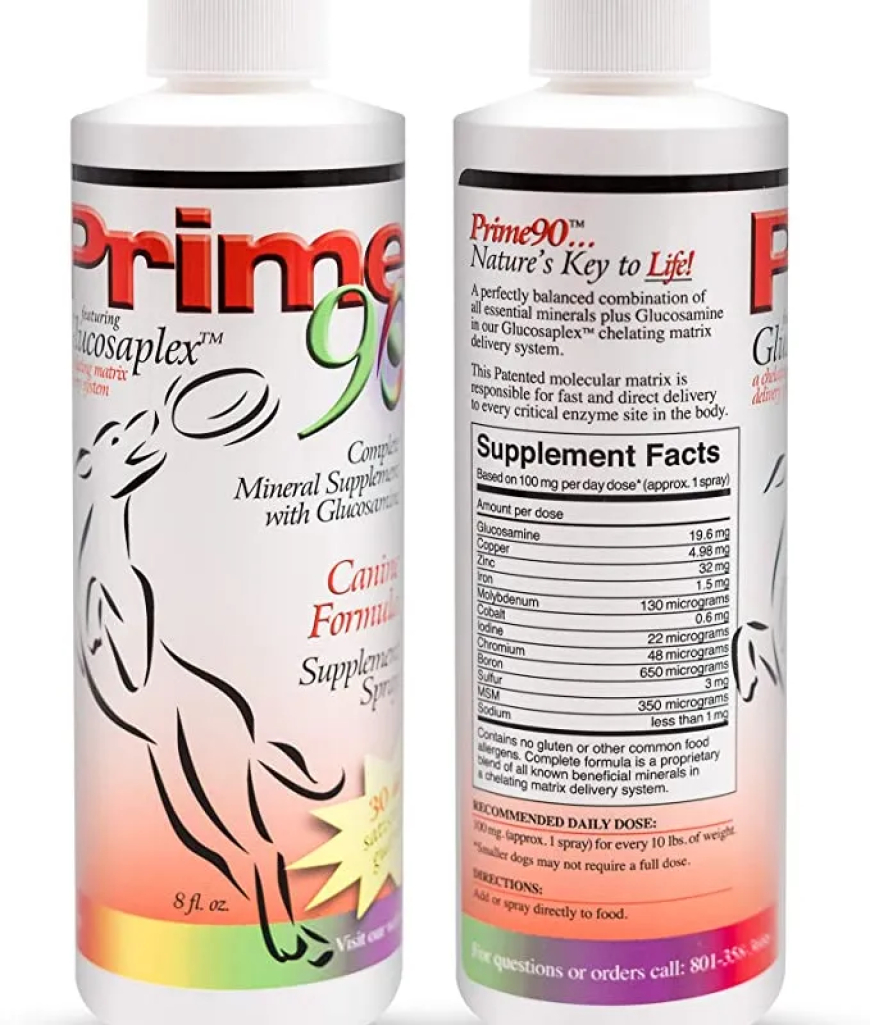How to Choose the Best Calcium Supplements for Dogs: Vet-Approved Tips
Discover vet-approved tips on how to choose the best calcium supplements for dogs. Learn about the benefits, dosages, and key ingredients to support your dog's bone health and overall well-being with expert guidance.
Ensuring that your dog has a well-balanced diet is crucial for their overall health and longevity. One essential nutrient that many dog owners overlook is calcium. Calcium plays a pivotal role in your dog's skeletal health, muscle function, and nervous system. However, sometimes your dog's diet may lack sufficient calcium, especially if they're on a homemade diet or have specific health conditions. This is where calcium supplements for dogs can come in handy. In this article, we'll dive deep into vet-approved tips for choosing the best calcium supplements and how to ensure your furry friend gets the proper nutrition they need.
Why Do Dogs Need Calcium?
Just like humans, dogs rely on calcium to maintain strong bones and teeth. It also helps with blood clotting, nerve function, and muscle contraction. Puppies need adequate calcium for proper bone development, while adult dogs require it to maintain bone health and prevent diseases like osteoporosis. If a dog's diet is deficient in calcium, they may experience:
-
Weak bones leading to fractures
-
Muscle spasms
-
Seizures
-
Heart arrhythmias
Therefore, it's essential to make sure your dog is getting the right amount of calcium through food or calcium supplements for dogs, especially under the guidance of a veterinarian.
When Should You Consider Calcium Supplements?
Before adding any supplement to your dog’s diet, it’s important to consult with a vet or dog nutritionist supplement expert. Your vet will assess your dog’s current diet and determine if they are calcium deficient. Here are situations where your dog may need additional calcium:
-
Homemade Diets: Dogs on homemade diets might not receive enough calcium unless their meals are properly balanced. Commercial dog food usually contains the necessary levels of calcium, but homemade meals may require supplementation.
-
Pregnant and Nursing Dogs: Pregnant or lactating dogs often need more calcium than usual to support their puppies' growth and milk production.
-
Senior Dogs: Older dogs might struggle with bone density and require more calcium to prevent conditions like arthritis and osteoporosis.
-
Illness or Recovery: Dogs recovering from certain illnesses or surgeries, especially related to the bones, may need a calcium boost.
Vet-Approved Tips for Choosing Calcium Supplements
1. Know Your Dog’s Calcium Requirements
Each dog has different calcium requirements based on their age, size, breed, and health condition. Puppies, for example, need more calcium to support bone growth compared to adult dogs. On the other hand, too much calcium can lead to hypercalcemia, a condition where calcium levels in the blood are too high, leading to kidney problems and bone issues.
For the average adult dog, the recommended amount of calcium is around 50-90 mg per kilogram of body weight. However, these numbers can vary. This is why it's essential to work with your vet or a dog nutritionist supplement specialist to calculate the right dosage.
2. Choose High-Quality, Natural Ingredients
When picking a calcium supplement, always check the label. The best calcium supplements for dogs should contain natural ingredients. Avoid products filled with artificial additives, preservatives, or fillers. Look for supplements that derive calcium from sources like:
-
Bone meal: A natural source of calcium that comes from ground animal bones.
-
Seaweed: Rich in calcium, seaweed can be a great plant-based option.
-
Eggshell powder: This is another natural calcium source that can be easily digested by dogs.
3. Check for Additional Nutrients
Calcium works best when paired with other vitamins and minerals. The most crucial of these is phosphorus. A proper calcium-to-phosphorus ratio ensures that the calcium is absorbed efficiently into the body. The ideal ratio is 1.2:1, meaning your dog needs slightly more calcium than phosphorus. In addition to phosphorus, vitamin D is also essential as it helps regulate calcium absorption in the body.
When choosing a supplement, look for products that include these additional nutrients. A dog nutritionist supplement expert can help you choose a product that contains the right balance of these essential nutrients.
4. Powder vs. Chewable Tablets: Which Is Better?
Calcium supplements for dogs come in various forms, including powders, chewable tablets, and even liquids. The best form depends on your dog’s preferences and needs.
-
Powders: Powdered supplements are often easier to mix into food and can be measured precisely. They are great for picky eaters who may not like the taste of tablets.
-
Chewable Tablets: These can be convenient if your dog enjoys chewable treats. Many of these tablets are flavored to be more palatable for dogs.
-
Liquids: Liquid calcium supplements can also be added to food or given directly to the dog.
No one form is superior to the other, so it ultimately comes down to your dog’s taste and how you want to administer the supplement.
5. Go for Vet-Recommended Brands
There are countless brands of calcium supplements for dogs on the market, but not all are created equal. Always look for vet-recommended brands that have been tested for safety and efficacy. These products have likely undergone rigorous testing to ensure they meet health standards and provide the right amount of nutrients.
6. Avoid Over-Supplementing
While calcium is crucial for your dog’s health, too much calcium can be harmful. Over-supplementation can lead to issues like kidney stones, heart problems, and soft tissue calcification. Puppies, in particular, are at risk for skeletal problems if they receive too much calcium. Always stick to the dosage recommended by your vet or dog nutritionist supplement advisor to prevent any potential issues.
7. Monitor Your Dog for Side Effects
Once you begin supplementing your dog’s diet with calcium, monitor them for any side effects. Symptoms of too much calcium include:
-
Excessive thirst or urination
-
Weakness or lethargy
-
Vomiting
-
Muscle tremors or twitching
If you notice any of these signs, contact your vet immediately.
8. Balance with a Well-Rounded Diet
Supplements are just that—supplements. They should not be a replacement for a well-rounded, nutritious diet. Make sure your dog’s meals are balanced with high-quality protein, healthy fats, and other essential vitamins and minerals. Your vet or dog nutritionist supplement expert can help design a diet that’s tailored to your dog’s needs, ensuring they get all the nutrients they require.
9. Look for Gluten-Free and Allergy-Safe Options
If your dog has food allergies or sensitivities, be sure to choose calcium supplements that are gluten-free and made without common allergens. Always read the ingredient list carefully and consult with your vet if you're unsure whether a product is safe for your dog.
10. Consult Your Vet Regularly
Finally, keep in close contact with your veterinarian. Regular check-ups can help monitor your dog’s calcium levels and ensure that the supplement is having the desired effect. Your vet will also be able to adjust the dosage as needed based on your dog’s changing health needs.
Conclusion
Choosing the right calcium supplements for dogs can be a daunting task, but with proper vet guidance and a thorough understanding of your dog's needs, it can become a seamless process. Whether you're looking to enhance your dog’s diet or manage specific health conditions, calcium plays a vital role in ensuring your furry friend lives a long, healthy, and active life. Always prioritize quality, vet-recommended supplements, and keep your dog's overall health in check by consulting with a dog nutritionist supplement expert. With these vet-approved tips, you're now equipped to make the best choices for your dog’s calcium needs.
What's Your Reaction?



























































:strip_icc():format(webp)/kly-media-production/medias/5082523/original/082651200_1736234619-patrick.jpg)















































